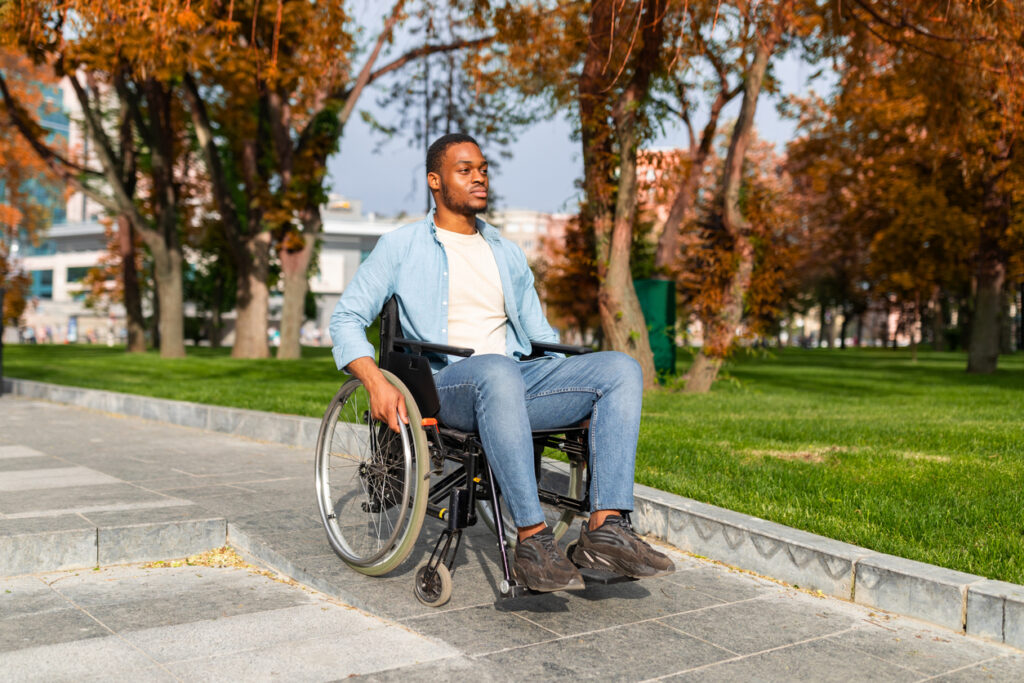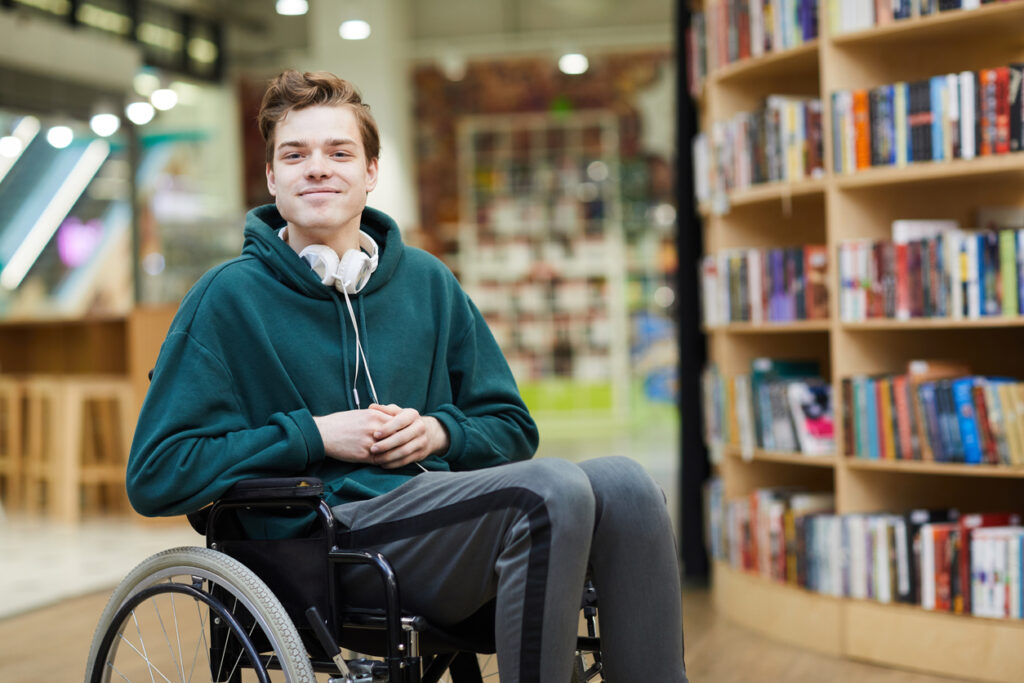Why Having a College Plan is So Important For Disabled Students
by Blog Writers
 By Dom Evans
By Dom Evans
When I was in high school, I didn’t understand that my guidance counselor should be helping me figure out what colleges I wanted to attend. I believe this was largely because of ableism. My guidance counselor would occasionally see me, but never specifically to talk about my future, probably because he didn’t think I had much of a future.
I also got the feeling that he thought because I handled so much of my life on my own, this was just another area I could figure out myself.
Since the time I was four, I knew I wanted to be an actor. As a teenager, I was heavily involved in theater and acting and had quite a lot of experience and training. I should’ve been looking at schools like NYU, USC, or UCLA. I should’ve been training and preparing for auditions.
Instead, I was floundering — I was stagnant in my approach to contacting schools. I got an offer to apply to Fordham, and I did, getting into their theater program. I was offered a chance to audition but my family believed I couldn’t go to school outside of Ohio if I wanted assistance from Ohio’s Bureau of Vocational Rehabilitation (BVR).

Nobody told me about BVR either. I’m not quite sure how I got connected with them, but they were also supposed to help me figure out my collegiate goals, and they told me I shouldn’t even bother applying outside of Ohio. The only problem was, there were better schools for what I wanted to do outside Ohio and I should have found a way to go to them — scholarships or something else.
In the end, I first went to Bowling Green State University, 30 minutes from my house. I then transferred down to Wright State University, which was a few hours from my house, but much more physically accessible. Both schools had pretty good theatre programs, but because of my ADHD, it was near impossible for me to figure out auditioning, and with WSU in particular, I wasn’t even prepared for auditions when I was finally scheduled to do so. I didn’t practice the way I should have, or invest time in working out what I needed to do for my audition. I believe this is because of executive functioning issues that were never addressed.
So, what ended up happening was that it took me SEVEN years of schooling to get my degree, and I went to three different schools. I spent a little time at the University of Michigan-Flint, also in their theatre program. By the time I transferred back to WSU, I was no longer pursuing theater. I was studying film. My goals had changed because my life had changed and that was partly because of my disability.
I had been injured multiple times and no longer had the capacity to be a working actor, so I decided to go behind the screen. Again, I had to figure everything out alone. My guidance counselor didn’t treat me like my peers because, like everyone else, he just did not know what to do with me because of my disability. Unfortunately, there’s nobody there to hold your hand and walk you through the process when you are disabled in most situations, and because of that I feel a lot of us miss out on a lot of opportunities.
I probably wouldn’t have gone to any of the schools I went to except for University of Michigan, if I had an actual choice. When you require homecare, when you can’t travel without assistance, these things all make it difficult to go to school far away. That being said, disabled people can do it. There were many people at WSU who came from different areas because the school was physically accessible to wheelchair users.
What really needs to happen is that when you are in high school, starting around junior year, you need to figure out what you want to do. Do you want to go to college? Do you want to go to a trade school? Sometimes going to college can help you figure out what you want to do, so if you are not sure what you want to do, go for a year and explore different classes.

If you do have a goal, what are the best schools for what you want to do? Do you have the grades to get into that school? If you do, what requirements for your disability are you going to need to accommodate? Can that school handle those accommodations? These are the first questions you need to ask yourself. There are questions I desperately wish I had asked myself or someone else had asked me. I believe I would have wasted less time in school if I had a better plan.
Once you figure those things out, what is your plan? You should obviously visit the school. Don’t attend a school you haven’t visited, especially if you are disabled. Once I got to WSU and I realized how physically accessible it was, I knew that It was going to be a breeze getting around. That was never a problem and I was able to become independent because I was able to live on my own on campus at WSU.
If you need homecare, that is something you need to figure out. Most states will allow you to still get your homecare if you are going to school somewhere else as long as your family/guardian is still living in the state that is providing the homecare. However, you’ll want to figure out home care issues before heading to college because having to figure it out while you’re going to school is a total headache
After you have visited, you should definitely talk to disability services and make sure they know who you are. Make sure they know what you need them to help you with in terms of accommodation. You may have to give them paperwork and something from your doctor so they can offer you services. It’s good to get that done as soon as possible.
If you have a major that you are going to declare, you also should reach out to the department. They need to become familiar with you and your accommodations. I always met with or emailed teachers if I could before class to let them know who I was and hash out anything I needed from them before classes began.
A lot of planning for college when it comes to being disabled is preparation. I didn’t understand I needed preparation and my education suffered as a result. It took me longer to graduate and figure out how I could accommodate myself.
Reach out to your guidance counselor now to help you with all of this rather than waiting until your senior year when they may not have the means or knowledge to help you figure out your past forward through higher education.
Dom Evans is the founder of FilmDis, a media monitoring organization that studies and reports on disability representation in the media. He is a Hollywood consultant, television aficionado, and future showrunner. His knowledge and interest on disability extends through media, entertainment, healthcare, gaming and nerdy topics, marriage equality, sex and sexuality, parenting, education, and more. He was also featured in Season 1 of Everything You Know About Disability is Wrong, an Easterseals podcast.






